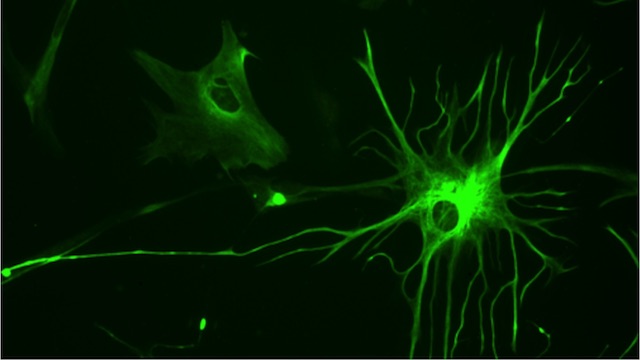 A human astrocyteWIKIMEDIA, BRUNO PASCAL
A human astrocyteWIKIMEDIA, BRUNO PASCAL
Parkinson’s, a neurodegenerative disease that primarily affects the motor system, is marked by a progressive loss of dopaminergic neurons in the brain. While current treatments are aimed at replenishing dopamine levels, none are able to restore the lost cells. Now, scientists have devised a way to reprogram glial cells into active dopamine neurons that can partially restore motor function in a mouse model of Parkinson’s. This proof-of-principle study could pave the way to a new treatment for the disease, researchers reported today (April 10) in Nature Biotechnology.
“In Parkinson’s disease, dopamine neurons die, but at the same time, because of inflammation . . . some glial cells become reactive and proliferate,” said coauthor Ernest Arenas, a molecular neurobiologist at the Karolinska Institute in Sweden. “So ...




















